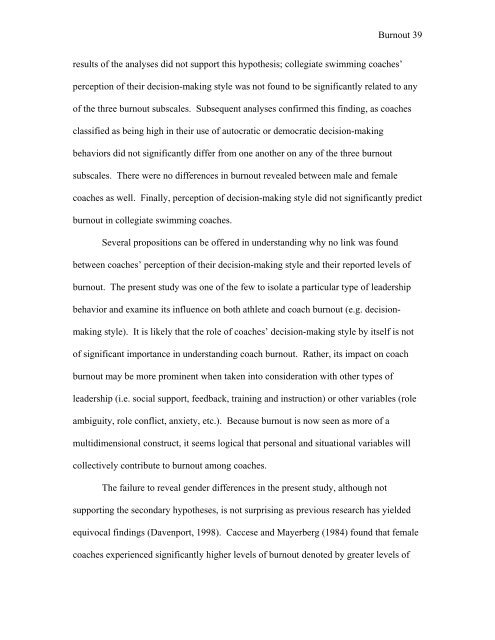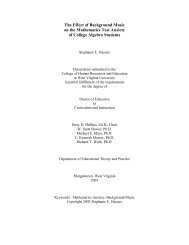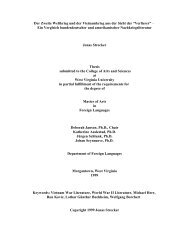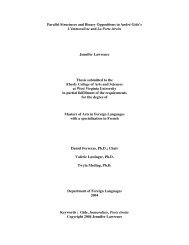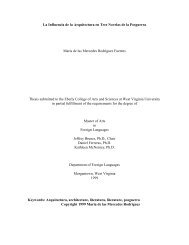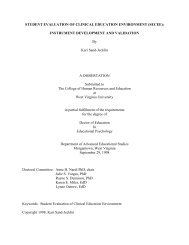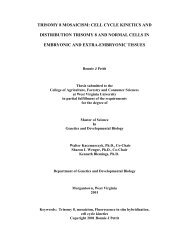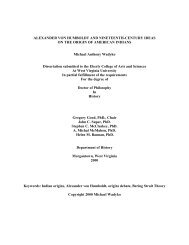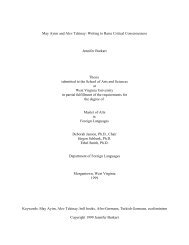Coach and Athlete Burnout - West Virginia University
Coach and Athlete Burnout - West Virginia University
Coach and Athlete Burnout - West Virginia University
Create successful ePaper yourself
Turn your PDF publications into a flip-book with our unique Google optimized e-Paper software.
<strong>Burnout</strong> 39<br />
results of the analyses did not support this hypothesis; collegiate swimming coaches’<br />
perception of their decision-making style was not found to be significantly related to any<br />
of the three burnout subscales. Subsequent analyses confirmed this finding, as coaches<br />
classified as being high in their use of autocratic or democratic decision-making<br />
behaviors did not significantly differ from one another on any of the three burnout<br />
subscales. There were no differences in burnout revealed between male <strong>and</strong> female<br />
coaches as well. Finally, perception of decision-making style did not significantly predict<br />
burnout in collegiate swimming coaches.<br />
Several propositions can be offered in underst<strong>and</strong>ing why no link was found<br />
between coaches’ perception of their decision-making style <strong>and</strong> their reported levels of<br />
burnout. The present study was one of the few to isolate a particular type of leadership<br />
behavior <strong>and</strong> examine its influence on both athlete <strong>and</strong> coach burnout (e.g. decision-<br />
making style). It is likely that the role of coaches’ decision-making style by itself is not<br />
of significant importance in underst<strong>and</strong>ing coach burnout. Rather, its impact on coach<br />
burnout may be more prominent when taken into consideration with other types of<br />
leadership (i.e. social support, feedback, training <strong>and</strong> instruction) or other variables (role<br />
ambiguity, role conflict, anxiety, etc.). Because burnout is now seen as more of a<br />
multidimensional construct, it seems logical that personal <strong>and</strong> situational variables will<br />
collectively contribute to burnout among coaches.<br />
The failure to reveal gender differences in the present study, although not<br />
supporting the secondary hypotheses, is not surprising as previous research has yielded<br />
equivocal findings (Davenport, 1998). Caccese <strong>and</strong> Mayerberg (1984) found that female<br />
coaches experienced significantly higher levels of burnout denoted by greater levels of


